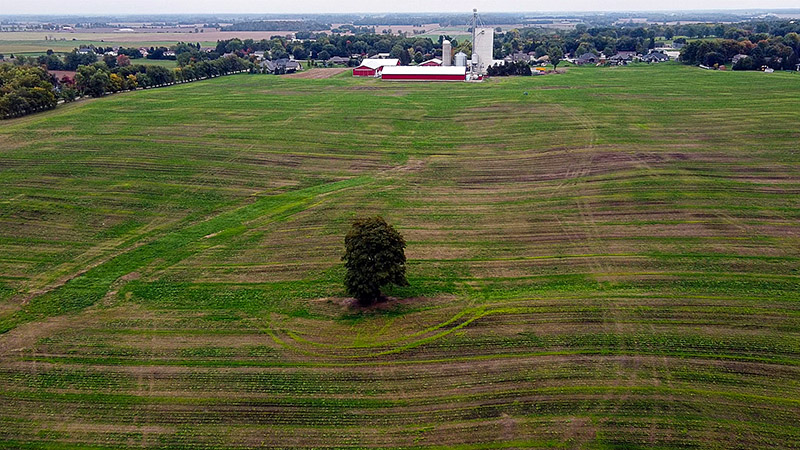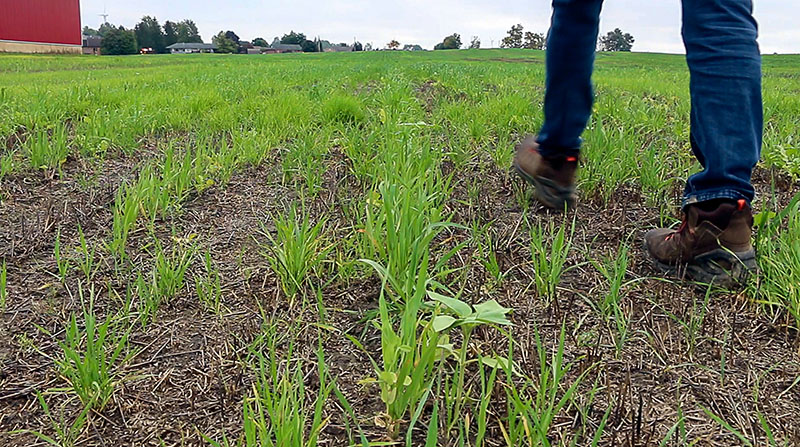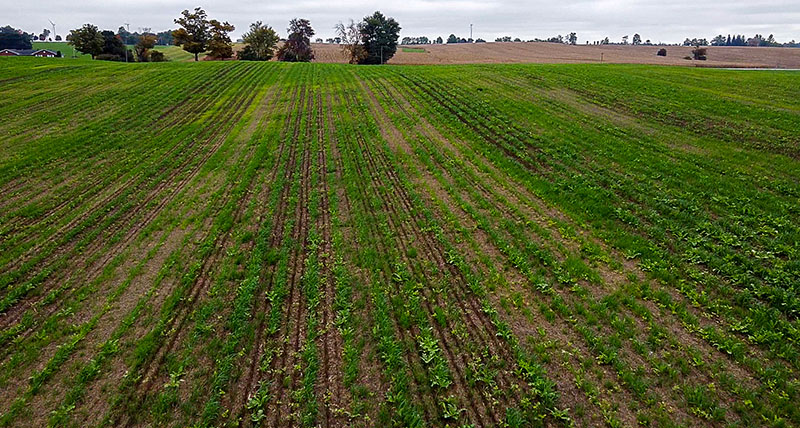Studying the Economics of Cover Crops (UTRCA Weekly, December 10, 2021)
Upper Thames River Conservation Authority (UTRCA) staff have long recognized the environmental benefits of cover crops, and now are looking at their economic impact, too. Mike Funk, UTRCA Agricultural Soil and Water Quality Technician, explained that cover crops can have a direct impact on water quality and quantity, as they improve infiltration and reduce runoff during extreme rain events. He says, “Cover crops are a proven practice when it comes to improving soil and water quality. In this trial project, we’re hoping to put a value on them from an economic standpoint.”
Staff approached Ken Martin of Veldale Farms about participating in the pilot project. Many of the Veldale Farms properties near Oxford Centre have a fairly rolling landscape, which creates erosion challenges and makes cover crops a suitable tool.

Veldale Farms developed a cover crop mix for the lands including oat, radish, and sunflower seeds. Application of the seed mix was preprogrammed into the tractor before to seeding using a “prescription map,” making the application very easy. So far, Ken is pleased with how the cover crop has established itself and grown.
As for the data, Mike explained that, “Data from this cover crop trial will be collected from the following corn crop, in about 12 months. Yield data from the harvested corn field next year will be compared between areas with and without a cover crop on the field this year. The yield data can be used to determine if there was an economic impact from the cover crop plants.”

The project is also monitoring the cover crop’s impact on soil fertility, whether there’s a nitrogen credit, and potential carbon sequestration. With farming inputs rising in cost, cover crops may make more and more economic sense.


